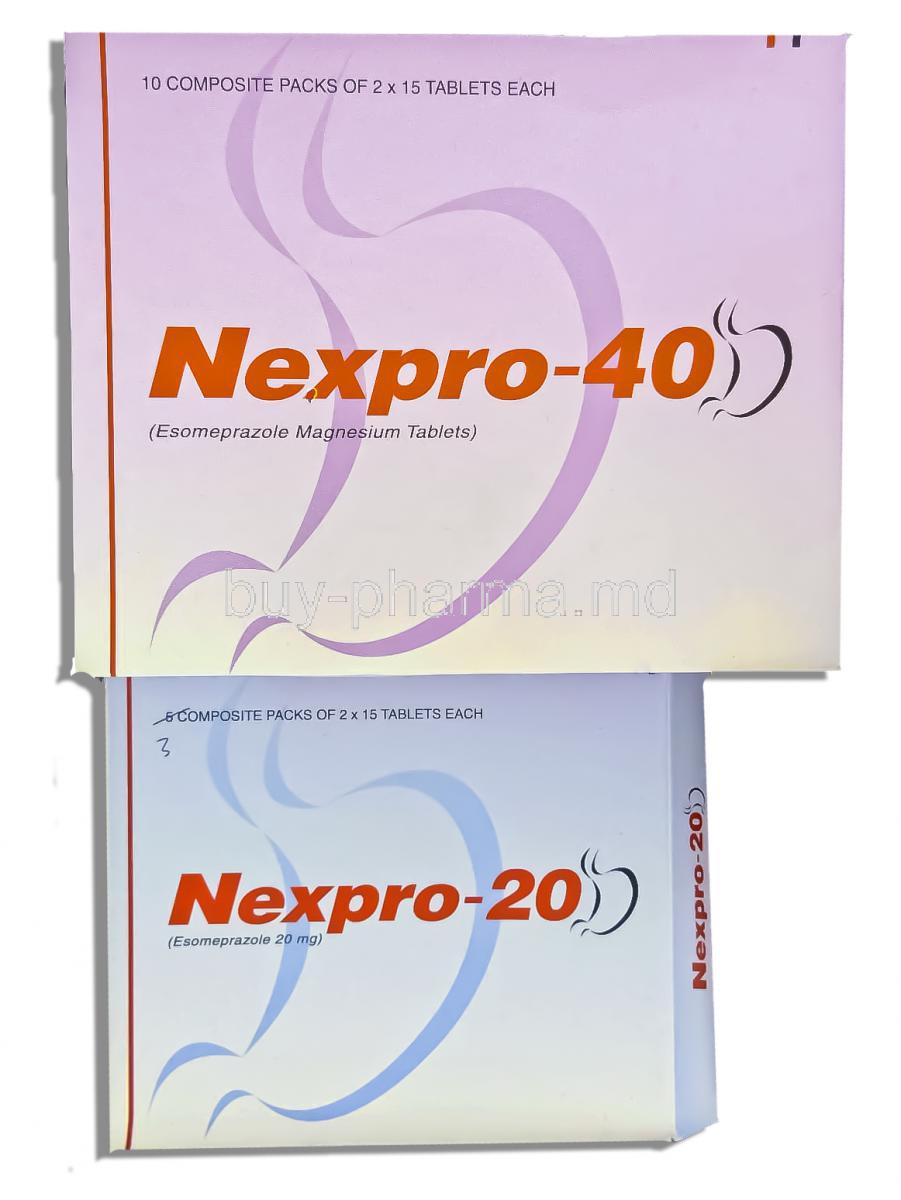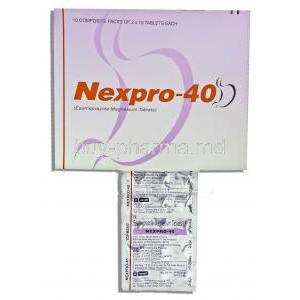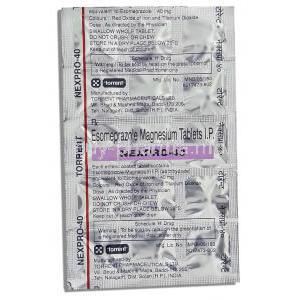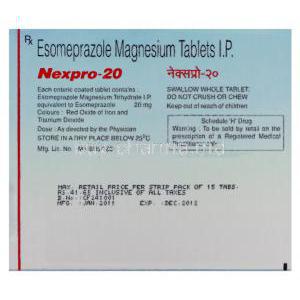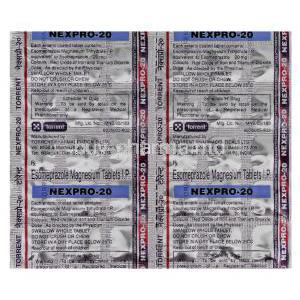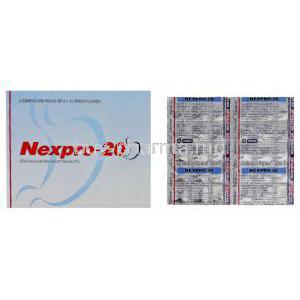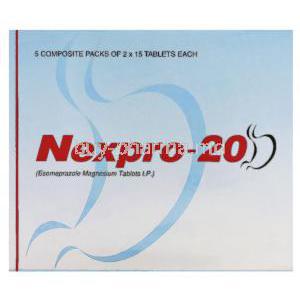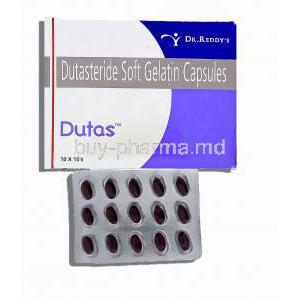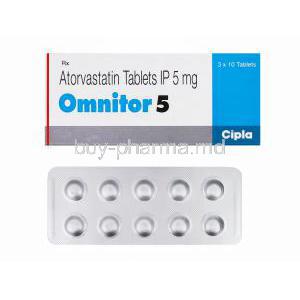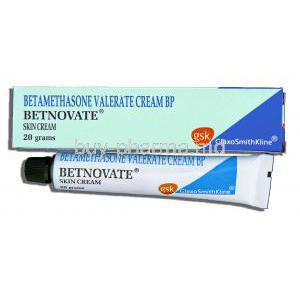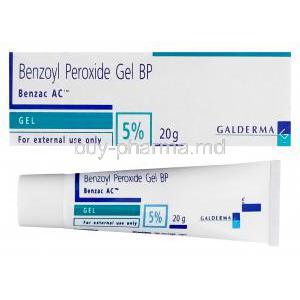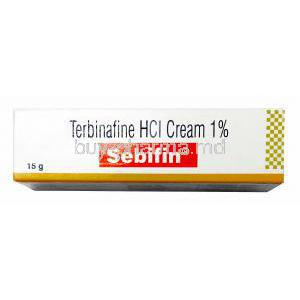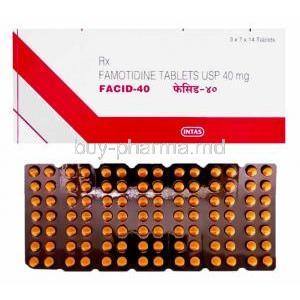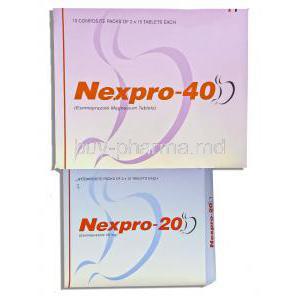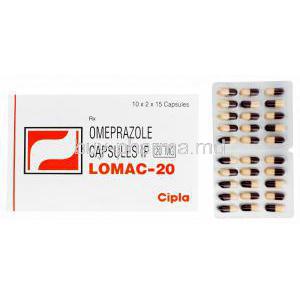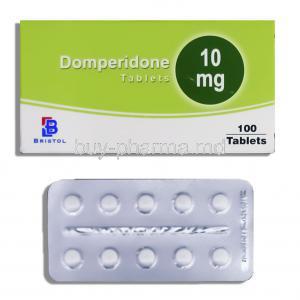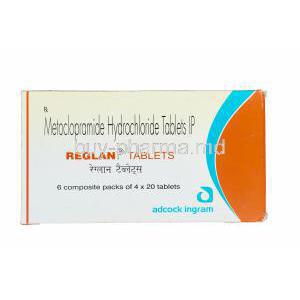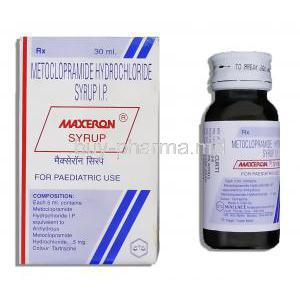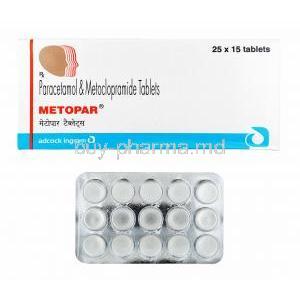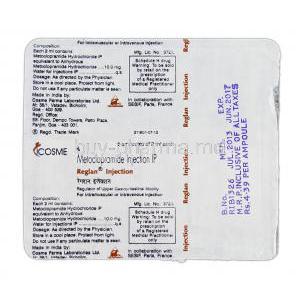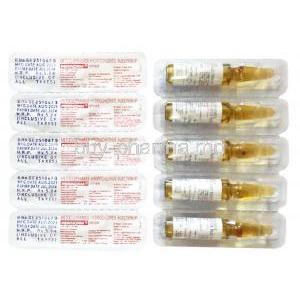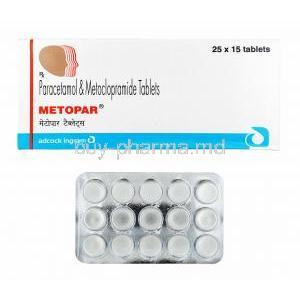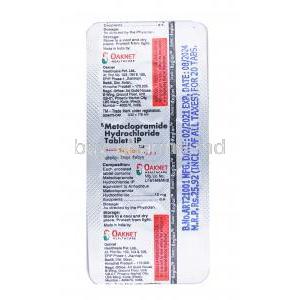Introduction
Nexpro, containing the active ingredient Esomeprazole, is widely recognized for its ability to regulate excess gastric acid production. It plays a pivotal role in the treatment of acid-related gastrointestinal disorders, offering relief and protection from persistent symptoms such as heartburn and acid reflux. Belonging to the pharmacological group of proton pump inhibitors (PPIs), Nexpro has become an essential medication for millions of patients globally.
- Therapeutic role: Relief of acid reflux and ulcer-related conditions
- Classification: Proton Pump Inhibitor (PPI)
- Global relevance: Available in multiple formulations and widely prescribed
Composition and Formulation
The efficacy of Nexpro originates from its key component, Esomeprazole magnesium trihydrate. This active ingredient is complemented by several excipients that enhance stability and absorption. The formulation is meticulously designed to deliver predictable acid suppression.
- Available strengths: 20 mg, 40 mg, and additional variations for tailored therapy
- Inactive ingredients: may include magnesium stearate, hypromellose, titanium dioxide, and other stabilizers
Mechanism of Action – How Nexpro Works
Gastric acid is secreted by specialized proton pumps located in the stomach lining. Nexpro exerts its effect by binding irreversibly to the H+/K+ ATPase enzyme system, preventing the final step of acid production. This blockade leads to a profound and sustained reduction in gastric acidity.
Unlike antacids that provide transient relief, Nexpro’s mechanism ensures prolonged efficacy by disabling active pumps until new ones are synthesized by the body. Compared to older PPIs, esomeprazole often demonstrates improved bioavailability and a more consistent therapeutic outcome.
Approved Medical Uses of Nexpro
Nexpro has been granted approval for a range of acid-related disorders:
- Gastroesophageal Reflux Disease (GERD): Relieves heartburn and prevents esophageal damage.
- Erosive esophagitis: Promotes healing of inflammation caused by persistent acid exposure.
- Peptic ulcer disease: Effective in managing both gastric and duodenal ulcers.
- Zollinger–Ellison syndrome: Controls excessive gastric acid output due to rare tumors.
- NSAID-induced ulcer prevention: Shields the stomach lining from ulceration during long-term NSAID therapy.
Off-Label Uses of Esomeprazole
Beyond its approved uses, Nexpro is often prescribed for conditions where acid suppression is beneficial:
- Functional dyspepsia: Relieves discomfort and bloating not linked to ulcers.
- Stress ulcer prophylaxis: Administered in critically ill patients to prevent mucosal bleeding.
- Barrett’s esophagus: Used as part of long-term therapy to reduce progression risks.
- Adjunct in Helicobacter pylori eradication: Enhances the effectiveness of antibiotic regimens.
- Laryngopharyngeal reflux (LPR): Provides symptom relief for chronic throat irritation and cough linked to acid reflux.
Dosage and Administration
Proper dosing is vital to achieve the desired therapeutic response. Nexpro is typically administered once daily, though certain conditions may require increased frequency.
- Adults: Standard dosage of 20–40 mg daily for GERD and ulcer therapy.
- Pediatric use: Doses adjusted by weight and age, usually reserved for children above one year.
- Hepatic impairment: Lower maximum dose recommended in severe cases.
- Duration of therapy: Typically 4–8 weeks, with longer use for chronic conditions.
- Administration: Best taken before meals for optimal acid suppression.
Administration in Special Populations
- Elderly patients: Generally well tolerated, but dose adjustment may be prudent in cases of polypharmacy.
- Pregnant women: Limited human data; use only if benefits outweigh potential risks.
- Nursing mothers: Small amounts may be excreted in breast milk; caution is advised.
- Children and adolescents: Approved in specific age groups with evidence from pediatric trials supporting efficacy and safety.
Side Effects of Nexpro
Nexpro is generally well tolerated, though some patients may experience adverse reactions. These vary in frequency and severity:
- Common side effects: headache, nausea, diarrhea, abdominal pain, constipation.
- Less common reactions: dizziness, dry mouth, rash, and mild fatigue.
- Serious adverse effects: hypomagnesemia, vitamin B12 deficiency with prolonged use, kidney dysfunction, increased fracture risk, and Clostridium difficile infection.
- Long-term use risks: gastric polyps and nutrient malabsorption, highlighting the importance of medical supervision.
Warnings and Important Precautions
Nexpro should be used with awareness of potential risks that extend beyond its immediate therapeutic effects. Certain precautions ensure safe administration and prevent complications during prolonged therapy.
- Risk of masking gastric cancer symptoms: Acid suppression may conceal the early manifestations of gastric malignancy such as persistent indigestion or weight loss, leading to delayed diagnosis.
- Monitoring requirements for long-term therapy: Patients on extended courses should undergo regular clinical reviews to assess liver, kidney, and gastrointestinal function.
- Electrolyte imbalance and vitamin deficiencies: Chronic use may result in hypomagnesemia, calcium malabsorption, or vitamin B12 deficiency, necessitating periodic laboratory evaluation.
- Caution with long-term high-dose use: Excessive or prolonged dosing increases the risk of bone fractures, renal impairment, and gastrointestinal infections.
- Potential rebound acid hypersecretion: Abrupt discontinuation may cause exaggerated acid production, leading to recurrence of symptoms.
Contraindications
There are specific scenarios where Nexpro should not be prescribed due to the high risk of adverse reactions.
- Hypersensitivity: Contraindicated in individuals allergic to esomeprazole or substituted benzimidazoles.
- Cross-reactivity with PPIs: Patients with known allergies to other proton pump inhibitors may exhibit similar reactions to Nexpro.
- Severe hepatic impairment: Not recommended in advanced liver dysfunction due to reduced metabolic clearance and heightened systemic exposure.
Careful Administration Guidelines
Certain patient groups require heightened vigilance when Nexpro is administered. Special care ensures that risks are minimized while therapeutic benefits are retained.
- Hepatic or renal impairment: Dose adjustments or enhanced monitoring may be required to avoid accumulation of the drug.
- Osteoporosis or fracture risk: Patients with a history of bone fragility should receive calcium and vitamin D supplementation when long-term therapy is unavoidable.
- Immunocompromised individuals: Suppressed gastric acid may increase susceptibility to gastrointestinal pathogens.
- Long-term NSAID users: Additional monitoring is required since combined use heightens the risk of gastrointestinal bleeding and ulcers.
Drug Interactions with Nexpro
Nexpro is metabolized through hepatic pathways, leading to significant drug–drug interactions that clinicians must consider.
- Antiretrovirals: Reduced absorption of atazanavir and nelfinavir, compromising antiviral efficacy.
- Warfarin: Potential alteration of INR levels, necessitating close anticoagulant monitoring.
- Clopidogrel: Esomeprazole may reduce the antiplatelet activity of clopidogrel, raising cardiovascular risks.
- CYP2C19 substrates and inhibitors: Drugs metabolized by or affecting this enzyme system may alter Nexpro’s plasma concentration.
- Other interactions: Interference with methotrexate clearance, altered sedation with diazepam, and absorption changes with ketoconazole.
Overdosage of Esomeprazole
Overconsumption of Nexpro can provoke toxic manifestations requiring immediate intervention.
- Symptoms: Confusion, accelerated heart rate, excessive sweating, and gastrointestinal discomfort.
- Management: No antidote exists; treatment is supportive and symptom-oriented.
- Gastric lavage: May be considered in recent ingestions, alongside continuous monitoring of vital signs and organ function.
Storage and Handling Precautions
Maintaining drug stability is essential for therapeutic integrity. Nexpro should be stored under strict conditions to avoid degradation.
- Storage conditions: Keep at controlled room temperature, away from extreme heat or humidity.
- Protection: Store in original packaging to safeguard from light and moisture exposure.
- Safe handling: Dispose of expired or unused tablets responsibly to prevent accidental ingestion or environmental contamination.
- Shelf life: Use within the expiry period indicated on packaging to ensure efficacy and safety.

